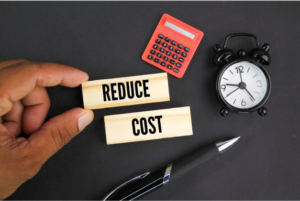
Managing Debt as a Single Parent
Being a single parent and juggling a lot of responsibilities can make debt management challenging. The goal of this blog is to give single parents clear-cut, helpful advice on how to successfully manage their debt. We’ll look at a number of tactics, such as figuring out what kind of debt you have and making a budget that you can live with. It’s important to keep in mind that you are not alone in this journey. Many single parents face similar challenges, and overcoming them is not only possible, but can also lead to a more stable and secure financial future for you and your children.
Understanding Your Debt
Knowing what you owe is an important first step in managing debt as a single parent. This entails carefully reviewing all your debts, including those from personal loans, student loans, credit cards, and other sources. Begin by listing all your debts and including important details such as the total amount due, interest rate, and monthly payment.
After you have all the facts, it’s time to assess the financial impact these debts have on your family. Due to their high interest rates, credit card debt in particular usually calls for immediate attention. It’s important to keep in mind that the goal is to pay off your debt in a way that will not only benefit you and your children but also be sustainable in the long run.
Creating a Budget
Budgeting is more than just keeping track of where your money goes; it is also about planning how to best use your money. Start by listing your monthly income, which should include your salary, any child support, and any other sources or side hustle. List your regular expenses (rent, utilities, groceries, minimum debt payments, etc.) after that.
Setting a realistic budget is essential. Your real living expenses and spending patterns should be reflected in it. Sticking to your budget will be difficult if you underestimate expenses or neglect to account for occasional expenses like school supplies or car maintenance. So you should consider everything in your budget.
Cost-Cutting Measures

Decreasing expenses is just as important as raising income when it comes to managing debt effectively. To start with, look over your budget and find places where you can make savings.
Your grocery could be a good place to start. Plan meals that are affordable, make use of coupons, and, when necessary, buy in bulk. Also, you may want to consider cutting back on non-essential spending like cable TV, eating out, and expensive activities. It is not a matter of depriving yourself or your children, but rather of finding more cost-effective alternatives.
Keep in mind that saving money doesn’t have to mean compromising quality of life. It’s about making more informed decisions to free up funds for debt repayment. When you become debt-free, you can get a wiggle room to enjoy the things you probably denied yourself during debt repayment.
Debt Reduction Strategies
Now that you have a well-defined spending plan, it’s time to concentrate on debt reduction. There are various tactics you can employ; the most effective one for you will rely on the specifics of your situation. The debt avalanche and debt snowball are two popular techniques. The debt snowball method involves starting with the smallest debts and gaining speed as you pay them off. On the other hand, the debt avalanche method prioritizes paying off loans with the highest interest rates first, which could result in longer-term financial savings.
If you’re having trouble handling your debt on your own, get expert guidance from EmpireOne Credit’s debt experts. We can offer tailored guidance and assist you in creating a strong plan to get out of debt.
Building an Emergency Fund
An emergency fund is an important part of money management, especially when you are in debt. When sudden expenses come up, this fund serves as a safety net to prevent you from going into further debt. Start by establishing a small, attainable target for your emergency fund.
You could set aside a few dollars to create this fund. No matter how little the amount may seem, it’s about forming the habit of saving. While paying off debt can be difficult at times, this is an essential step in preventing future debt accumulation.
To resist the urge to use your emergency fund for non-emergencies, think about creating a different savings account specifically for that purpose. This fund should not be used for routine expenses or discretionary spending; rather, it should only be used for true emergencies, such as urgent auto repairs or unanticipated medical bills.
Get Debt Relief Now
Being a single parent managing debt can be a challenging task. But there’s good news for you. Do you know that you could reduce your debt by up to 80%, and interest will stop immediately? You can speak with one of our debt experts at EmpireOne Credit to get tailored advice to help your current financial situation. Call us at (416) 900-2324 to schedule a free consultation with us. Being debt-free feels good!






